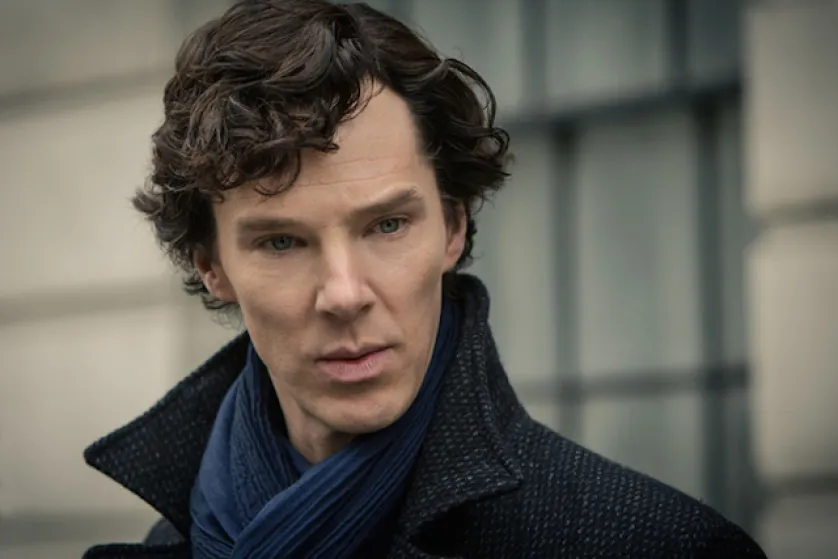If the online reaction to Glass Onion: A Knives Out Mystery has proven anything, it’s that the internet’s love for Benoit Blanc knows no bounds. The hotly-anticipated sequel to the breakout hit Knives Out features just one returning character—Daniel Craig’s heavily accented, utterly dapper, and achingly sincere Benoit Blanc. Though Glass Onion‘s critical and fan reception wasn’t quite as glowing as its parent film, that same dip in regard cannot be said for Benoit Blanc. The man is undeniably more popular now than he’s ever been.
But why? What’s so compelling about a goofy-talking detective that he’s managed to capture the hearts of the internet and—more importantly—secure his legacy as a beloved, franchise-driving leading man?
When you take a look across the board at leading men of big-budget franchises, there’s somewhat of a recurring theme: from Star Wars to the MCU to the Fast and Furious franchise, conventionally masculine, uber-heroic and unflinchingly stolid leading men continue to prevail. Just look at Top Gun: Maverick and Avatar the Way of the Water‘s box office supremacy.
Though there’s certainly nothing wrong with having a man’s man at the head of your franchise, that’s exactly what Benoit Blanc is not—and that’s why he works so well. Not only is Benoit Blanc a refreshing counterpoint to the conventional male leads but he also functions as a quiet subversion of the ‘gentleman detective’ tropes that’s oh-so-prominent in mysteries, and the misogynistic undertones that come with it.
On paper, Benoit Blanc’s character isn’t too far from the classic tropes and stereotypes that typically compose the ‘gentleman detective’ archetype—a character type that saw particular prominence in the detective novels and crime fiction of the genre’s golden age in the 1920s and 30s. Though the archetype has its roots as far back as Edgar Allan Poe’s C. August Dupin (whose stories were published in the 1840s), modern audiences will be familiar with the archetype in characters like Benedict Cumberbatch’s Sherlock Holmes, Hugh Laurie’s eponymous Dr. House, and Japan’s ever-popular Lupin the III.

The gentleman sleuth is often well-off, fond of eccentric hobbies and wardrobe, and is prone to mouthing off and using his wit to talk circles around the bumbling villains around him. But while those characters may make for electric leading men and compelling heroes to follow through a mystery, they also have some more unsavory traits in common—particularly, a strangely persistent undercurrent of misogyny. It’s easy to see where a genre most popular in the 1920s and 30s with wealthy British men might have picked up some misogynistic traits, like the relegation of women to the ‘femme fatale’, the damsel in distress, or the sexy secretary.
It’s not just limited to women’s role (or lack thereof) in the narrative, either. Oftentimes, so-called gentleman detectives have an ingrained disdain for or pointed attitude towards women—though they’re happy to objectify them. It’s an unfortunate trope that’s been explored somewhat through characters like Lucy Liu’s Watson in Elementary, but on the whole is acknowledged as a somewhat distasteful but not deal-breaking convention of the genre. Enter stage left, Benoit Blanc in his two-piece striped swim trunks and yellow ascot.
When the Thrombey family is first introduced to Benoit in the original Knives Out, there are several references made to an in-universe New Yorker profile about Benoit that explicitly labeled him as “the last of the gentleman sleuths.” And it’s easy to see why writer/director Rian Johnson would directly invoke the terminology/acknowledge the trope. Not only is Benoit used to examine this convention, but he’s also a grade-A example of it.
Benoit Blanc (though he may externalize them differently from some of his predecessors) has all the classic traits of a gentleman sleuth. Eccentric taste in clothing? Check. Affinity for music? Swap Sherlock’s violin-playing for Benoit belting showtunes from Follies with his headphones in. Biting wit that runs circles around his suspects? That’s the entire second act of Glass Onion. But in one crucial way, Benoit Blanc differs from the pack: his attitude towards women.
Rachel said it best: Benoit Blanc loves having the assistance of a kindhearted, plucky young woman on his cases. Whether it’s Ana De Armas’ Marta or Janelle Monae’s Helen, both Knives Out films have featured a young, female protagonist, who is initially introduced as a suspect but ends up becoming the heroine of the narrative, with a nudge every now and then from Benoit as he works to solve his cases. What’s so unique about Benoit, though, is that these women don’t serve as pseudo-Watsons or tools for an investigation, nor are they thought of as “lesser than”, like the rest of the rabble that make up Knives Out ensemble casts.
No, instead Benoit makes expressly clear his admiration of Marta and Helen, going out of his way to compliment Marta’s capacity for goodness and her dedication to her job, as well as Helen’s natural predilection towards detective work and her passion for bringing her sister justice. Marta and Helen are not damsels, or femme fatales, or secretaries. They are strong, clever young women, and Benoit Blanc wants to make damn sure that everybody knows it. That’s what makes him such a remarkable approach to the gentleman sleuth.
By tilting his axis towards having respect and fondness for women instead of disdain and lust, Benoit’s entire character feels new and refreshing in a genre that thrives off of its old-world sensibilities and aesthetics. Of course, his more unorthodox aesthetic qualities certainly set him apart: the ‘Foghorn Leghorn’ accent, affinity for donuts, and choice in swimwear are all Benoit-isms entirely singular to Daniel Craig’s gentleman sleuth.
I’d also be remiss if I didn’t mention his recently-confirmed sexuality: Benoit is a gay man, implied to be cohabitating with Hugh Grant’s (in an iconic Glass Onion cameo) homemaking hunk Philip. Though some modern fan-readings would like to see Sherlock and Watson in a romantic relationship, this is the first true case in which the gentleman detective in a major mystery film/series has been queer. Admittedly, this aspect of Benoit’s life has yet to be explored in-depth, and currently functions as more of an identity marker than anything else.
Still, it’s worth noting that it takes a queer man—someone with no sexual interest in women—to start showing female mystery characters some respect. Still I’d hope that one day, we’ll get to a place where it won’t take a gentleman sleuth being confirmed gay for them not to be misogynistic. But the internet has always loved its eccentric gays, and Benoit Blanc is certainly no exception: if he was a standout element of the first film, he’s become a bonafide sensation thanks to Glass Onion. You’d be hard-pressed to find a character as universally beloved across the internet as Benoit Blanc.
Though there’s no doubt that Daniel Craig’s animated performance, Rian Johnson’s eye for character, and that damn accent are responsible for much of the initial draw to the character, the way in which Benoit Blanc challenges conventions of the gentleman detective trope not only makes him a revitalizing take on the archetype, but a beloved pop culture icon.
(featured image: Netflix)








